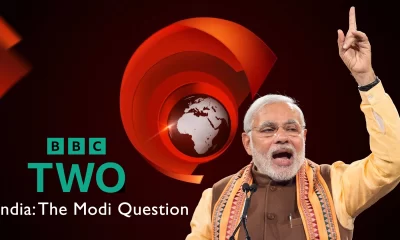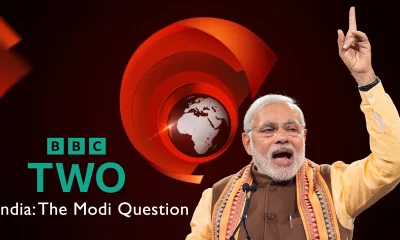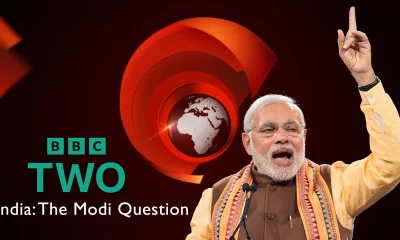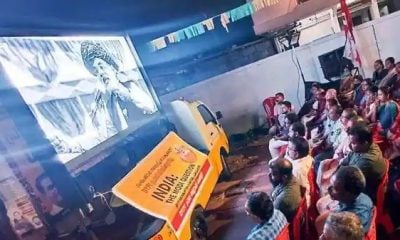A British parliamentarian has termed the controversial BBC documentary on Prime Minister Narendra Modi as a “propaganda video” and a “disgraceful piece of shoddy journalism.”
In an interview with news agency ANI, UK Member of Parliament, Bob Blackman said the contentious documentary should never have been released as it ignored the “all-important fact” that India’s Supreme Court had already investigated the accusation against PM Modi in connection with the 2002 riots and didn’t find a shred of evidence.
Bob Blackman, a member of the ruling Conservative and MP for Harrow East, asserted that as Gujarat chief minister, Narendra Modi did his best to appeal for peace and calm the tempers during the infamous 2002 Godhra riots.
The politician accused the two-part documentary of slander which regrettably makes it seem as if the BBC had some agenda to India-UK ties. He said that the United Kingdom regards India as a strong friend and ally and the two countries were negotiating a landmark free trade deal and anything that disrupts the process is extremely regrettable. Blackman also lauded PM Modi for the radical transformation of India’s economy.
The British parliamentarian said BBC piece on PM Modi was merely overseen by the broadcaster but produced by an external organization and as such was “full of innuendos” adding that the two-part series was more on the lines of a propaganda video and a “disgraceful piece of shoddy journalism” targeting Narendra Modi, first as a Chief Minister of Gujarat and then as India’s duly elected Prime Minister.
Blackman said that the BBC should never have released the documentary as the British broadcaster has a worldwide reputation and people might think that all these things were true because the BBC broadcasted it. But, said Blackman, the documentary, produced by an external organization and overseen by the BBC is “far from the truth” as it failed to delve into the cause of the 2002 Gujarat riots and also ignored the fact these allegations have been thoroughly investigated by the Supreme Court which found “all the claims against Narendra Modi and found that not a shred of evidence to support them.”
Read Also: Railways cancel 445 trains, reschedule, divert routes of over 70 trains, check full list here
Blackman said Narendra Modi, as then chief minister of Gujarat, had sought additional police resources within Gujarat and beyond and eventually called in the army to help quell the riots.
In his critique of the BBC documentary, Blackman said that it showed Modi making appeals for calm and urging people to not riot and then put contradicted that with a whole another series of different montages together with different people, adding that the people involved in the making of the film, clearly have an axe to grind against Narendra Modi.
India’s Ministry of External Affairs had termed the documentary a “propaganda piece”, saying it reflected a “colonial mindset”, while the Centre has issued directions for blocking YouTube videos and Twitter posts sharing links to the controversial piece.
BBC tax survey
Regarding the tax surveys conducted Indian tax authorities at British Broadcasting Corporation’s offices in New Delhi and Mumbai, Blackman said the review of the broadcaster’s tax affairs is “nothing new” and “has been and has been going on for quite some time, adding that there have been prior discussions between India’s taxmen and the BBC and the UK national broadcaster is bound to follow the relevant rules and regulations.
Blackman said its BBC’s job to ensure they are caught with the rules and regulations while operating in the country and while some may view it as an attack on media, that’s not an accurate assessment of the situation.
The MP said that it was merely a review and no suggestions of charges or anything along those lines have been made by the Indian authorities.
On a question asking if BBC film on PM Modi reflects the view of the British government, Blackman dismissed such suggestion and said the BBC is not an arm of the British government and is frequently critical of the UK regime… “and that’s their job, their job is to ask questions, to look for evidence. But the key here is you can ask questions but when there is evidence to the contrary and it’s quite clearly not the case, then you shouldn’t be casting aspersions. I think that is the difference here, which I think it is extremely regrettable because it would seem as if there was some sort of agenda of the BBC to disrupt UK-India relations.”
Blackman hoped that the film would not impact India-UK relations, adding that he, however, agreed to one thing in the BBC documentary which said that Narendra Modi and the BJP government will probably be re-elected next time and the time after.
The British MP said that PM Modi and the BJP deserve it as they done “a remarkable job” in steering India towards becoming the world’s fifth biggest economy now in the world.
BJP MP Manoj Tiwari reaches Bageshwar Dham, sings Bhojpuri songs
Twitter hails Deepika Padukone for travelling in economy class, video viral | Watch
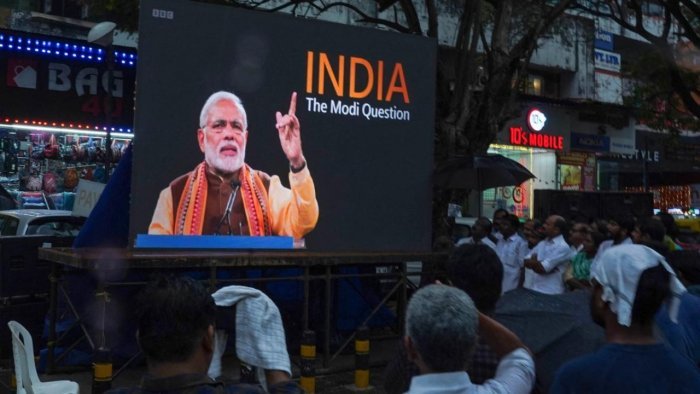

 LATEST SPORTS NEWS8 hours ago
LATEST SPORTS NEWS8 hours ago
 India News8 hours ago
India News8 hours ago
 India News9 hours ago
India News9 hours ago
 India News8 hours ago
India News8 hours ago
 Latest world news2 hours ago
Latest world news2 hours ago
 India News46 mins ago
India News46 mins ago
